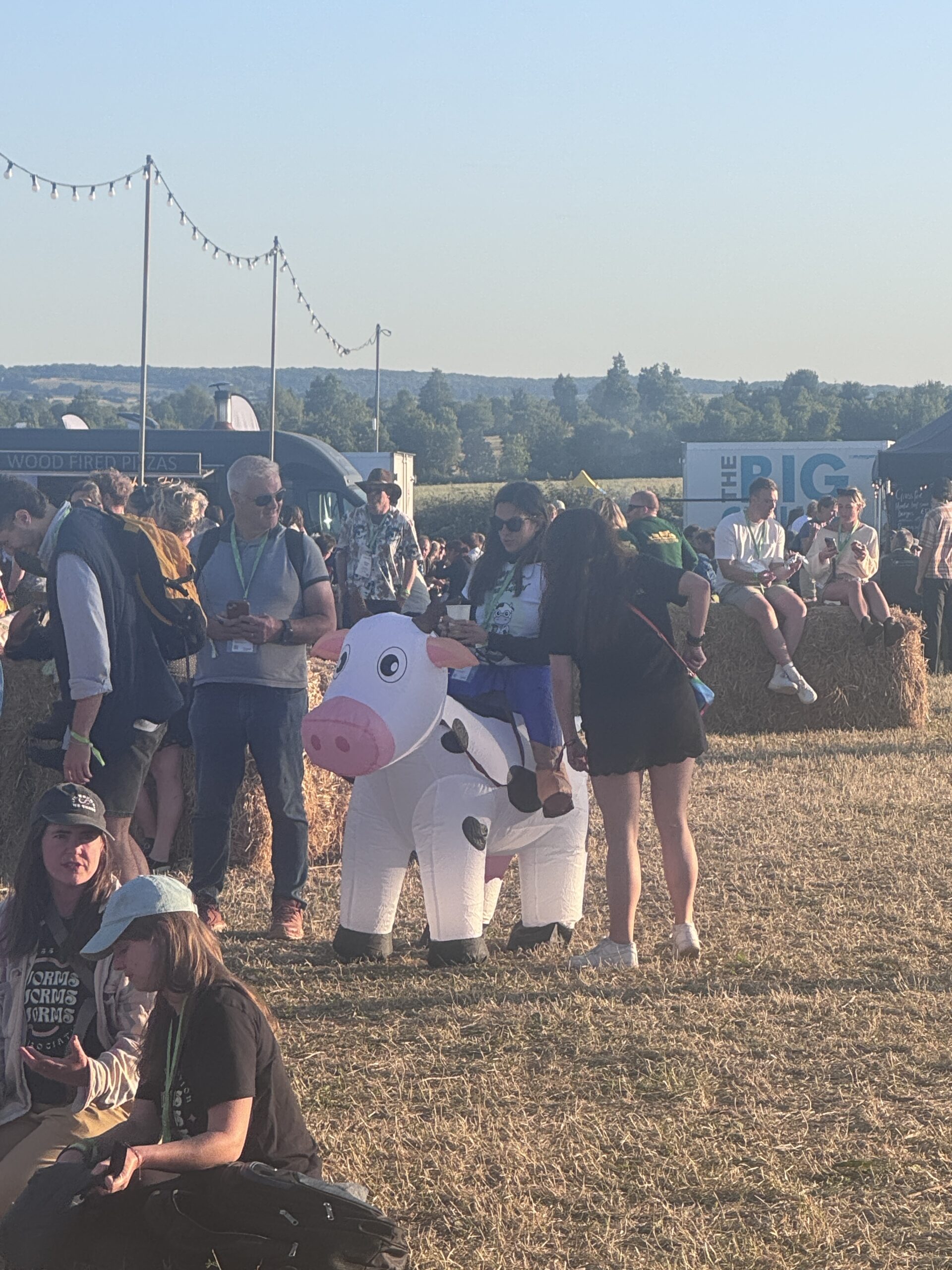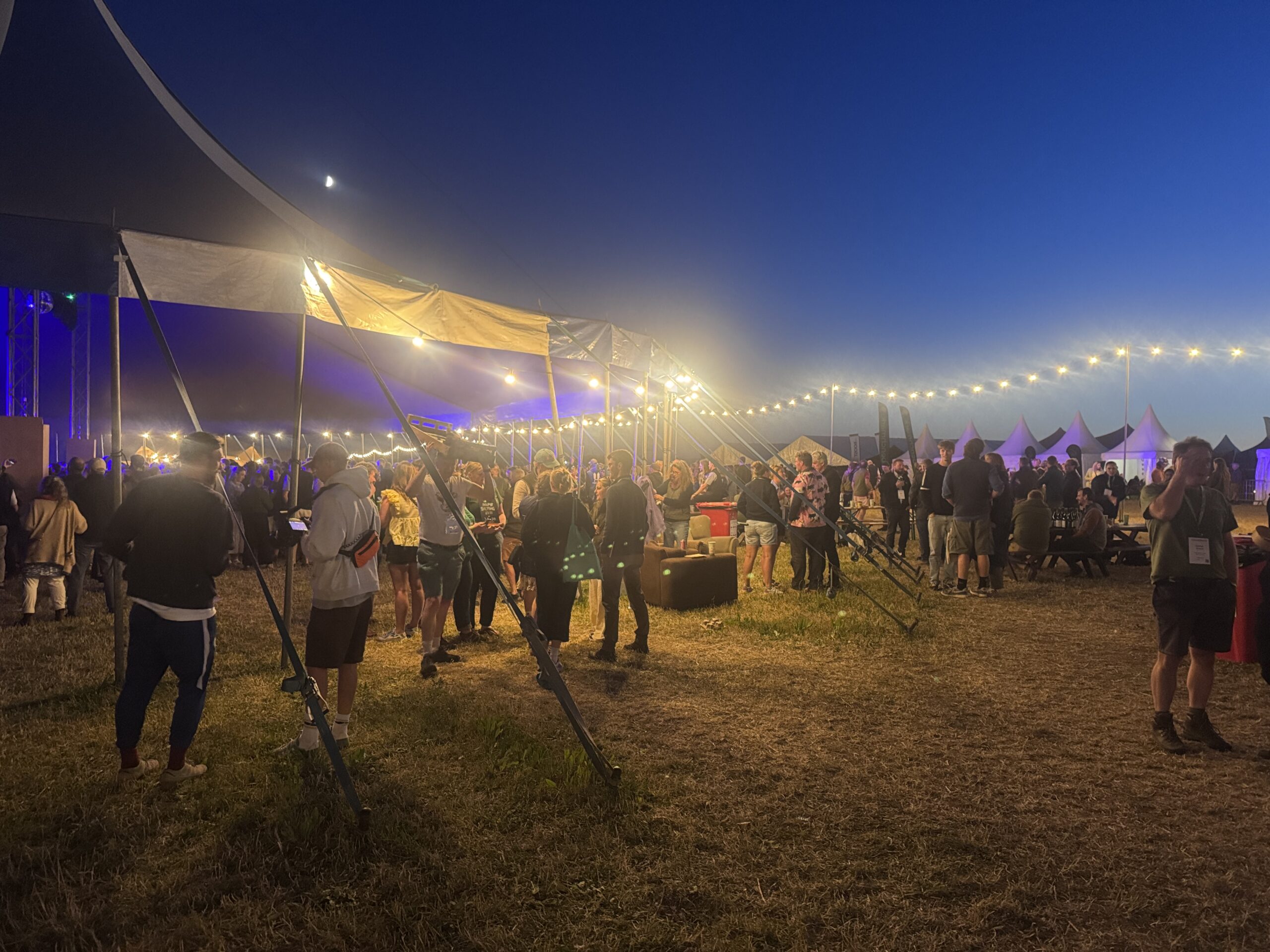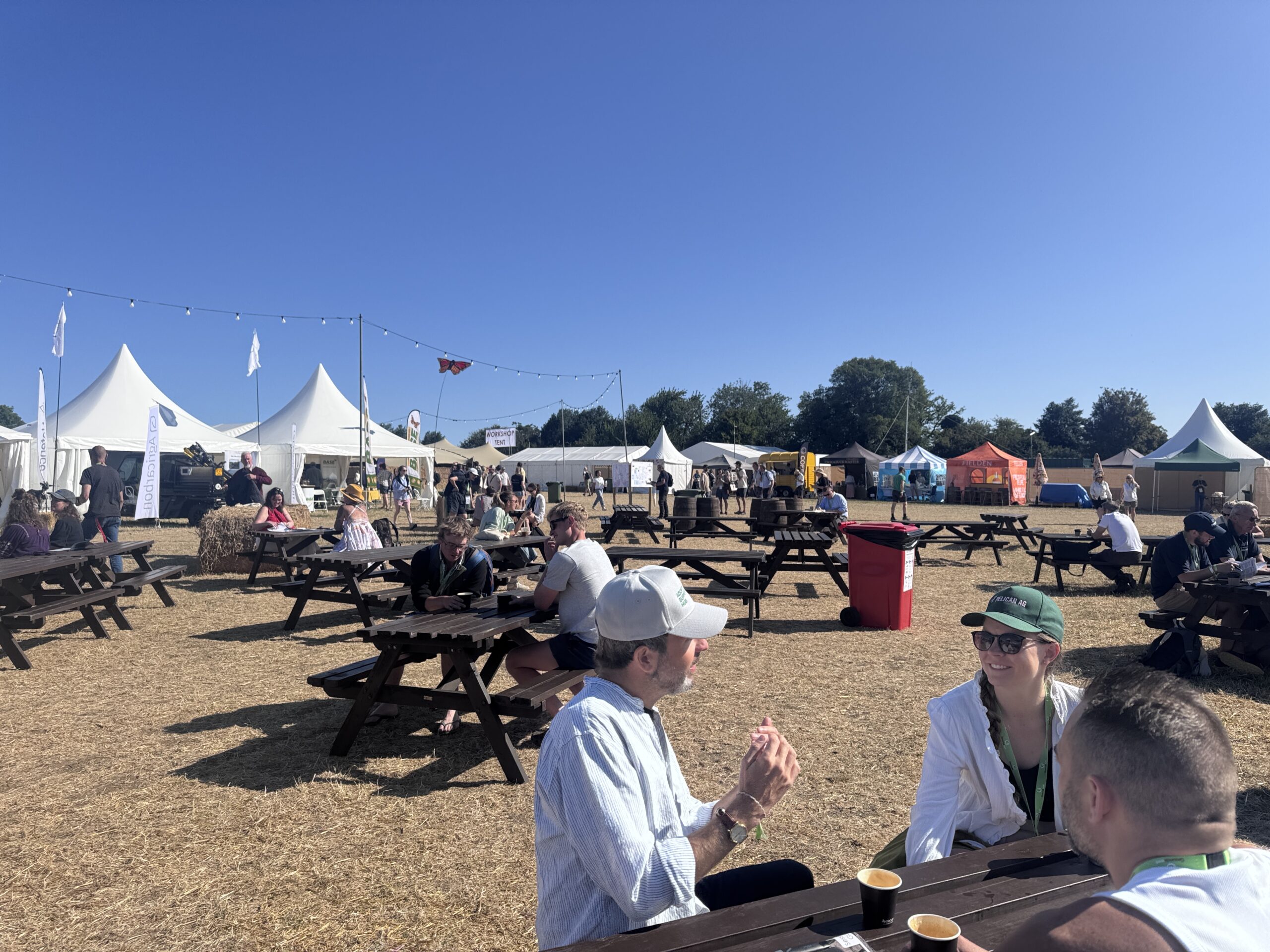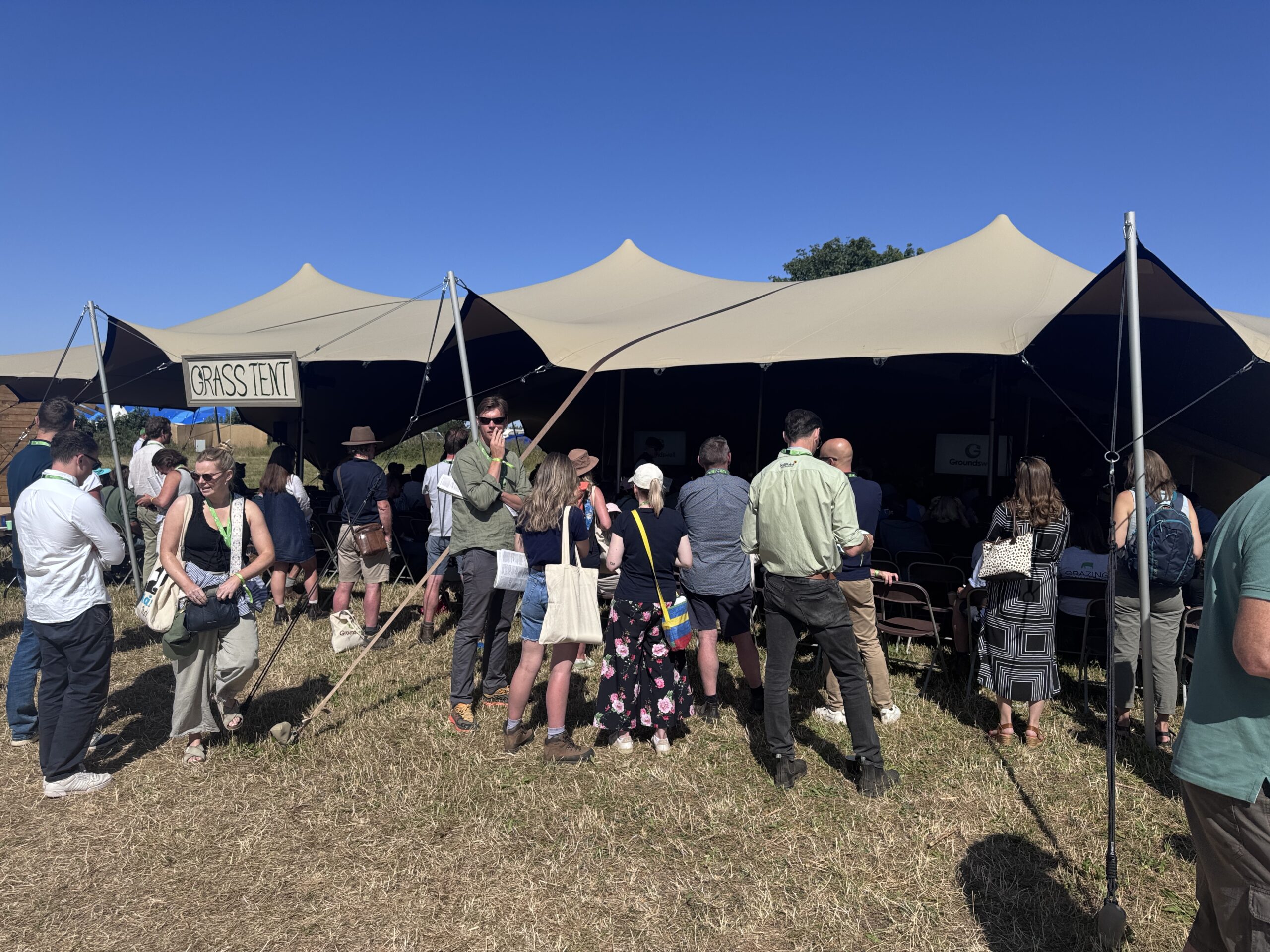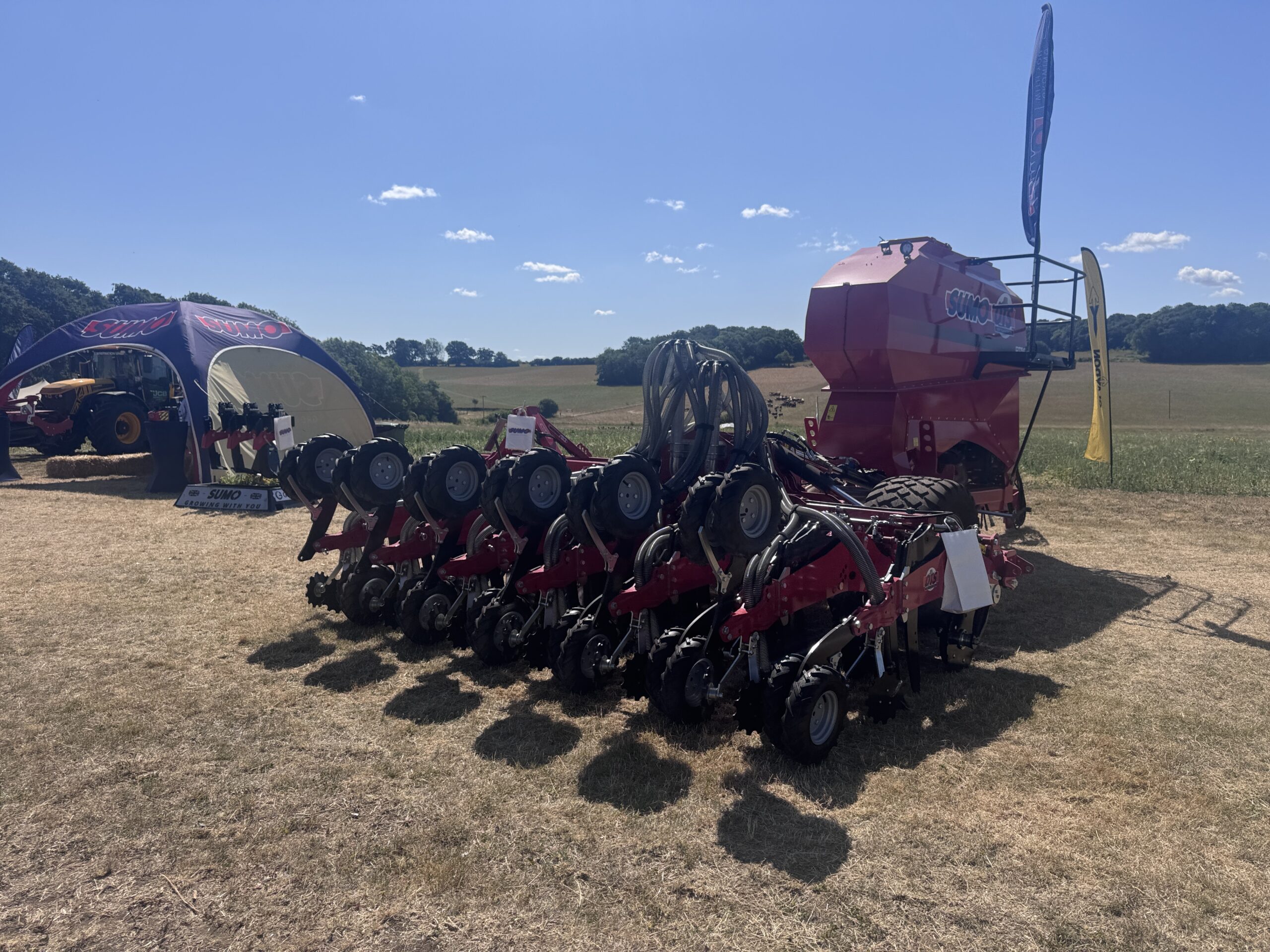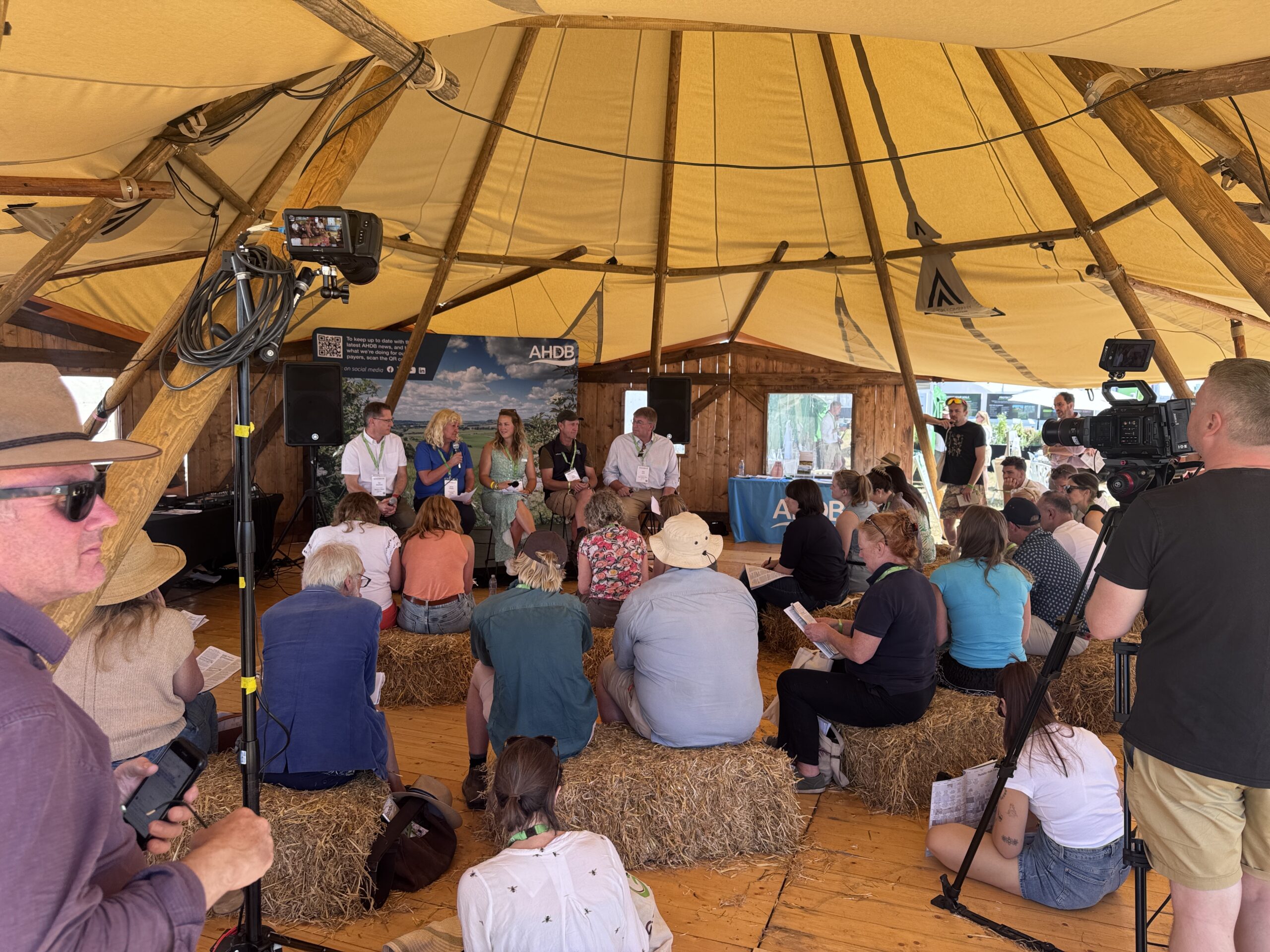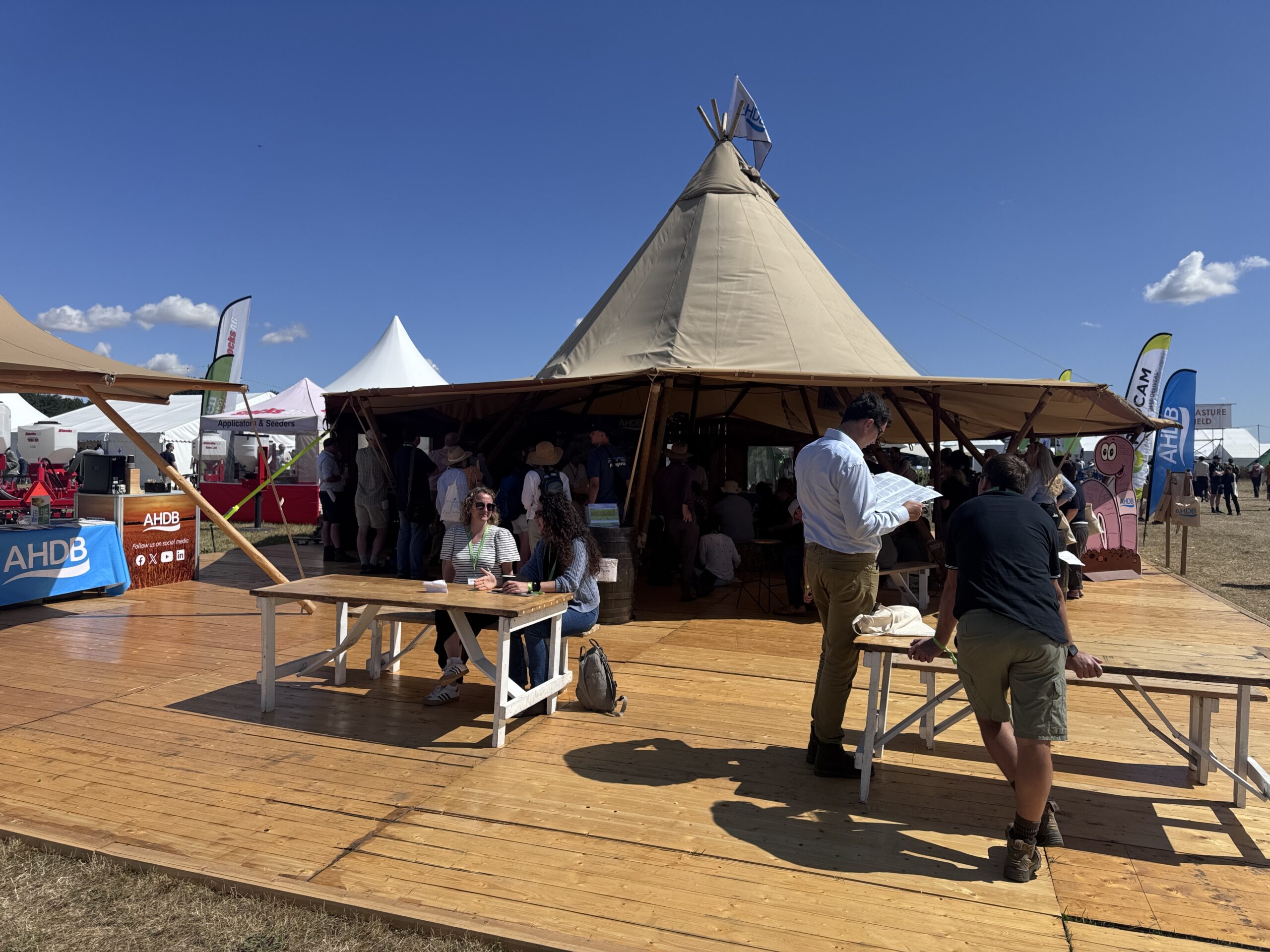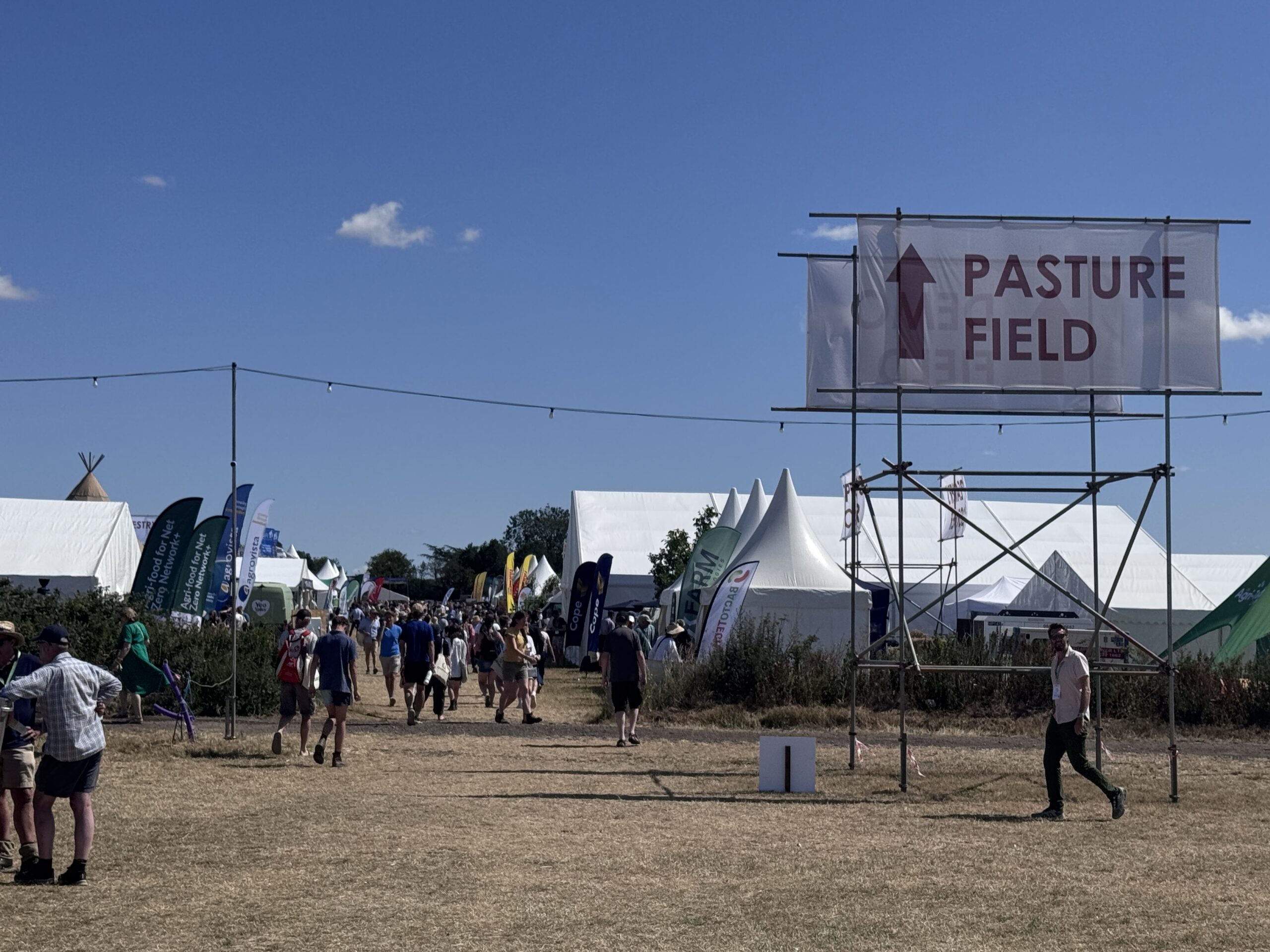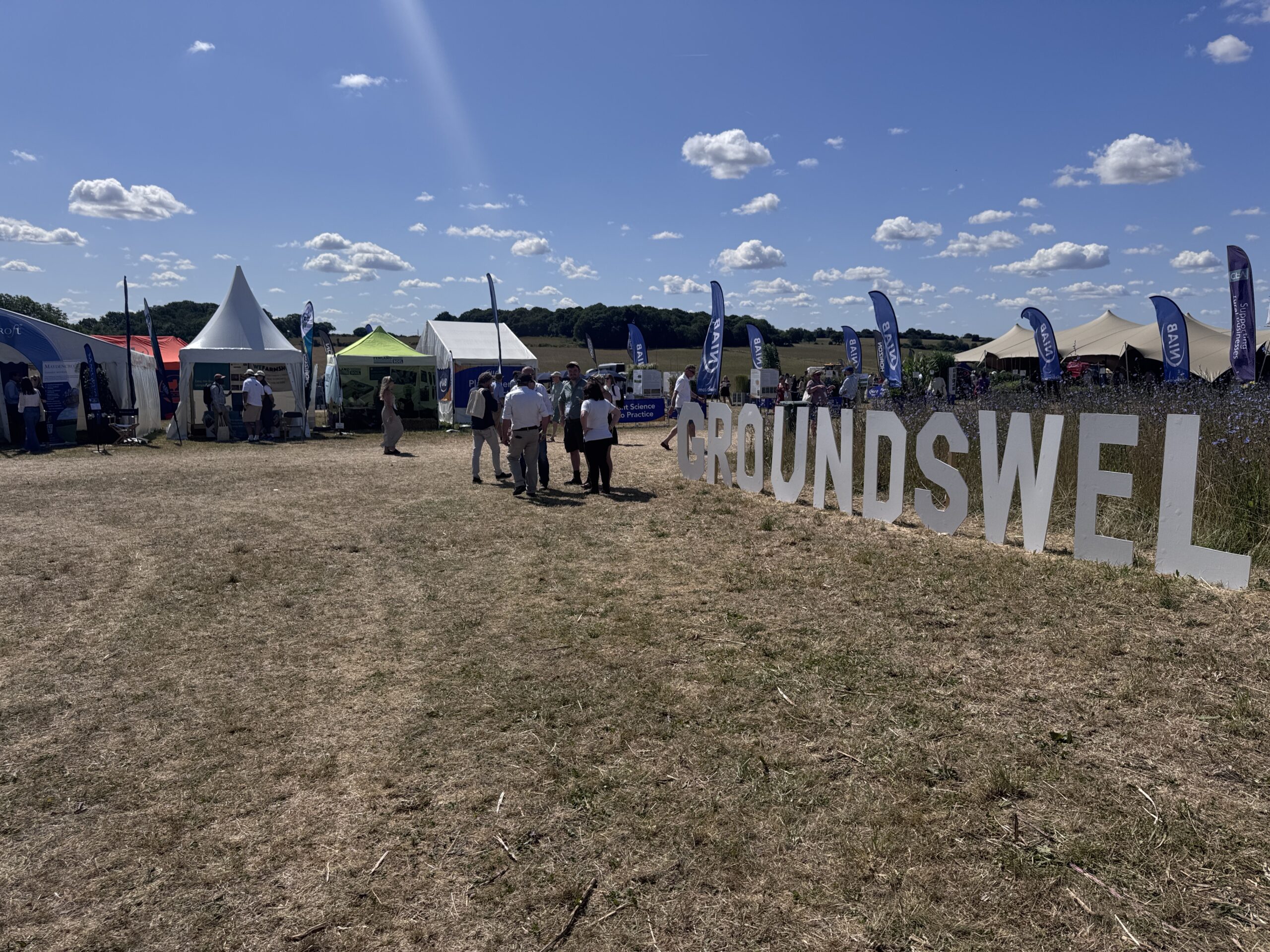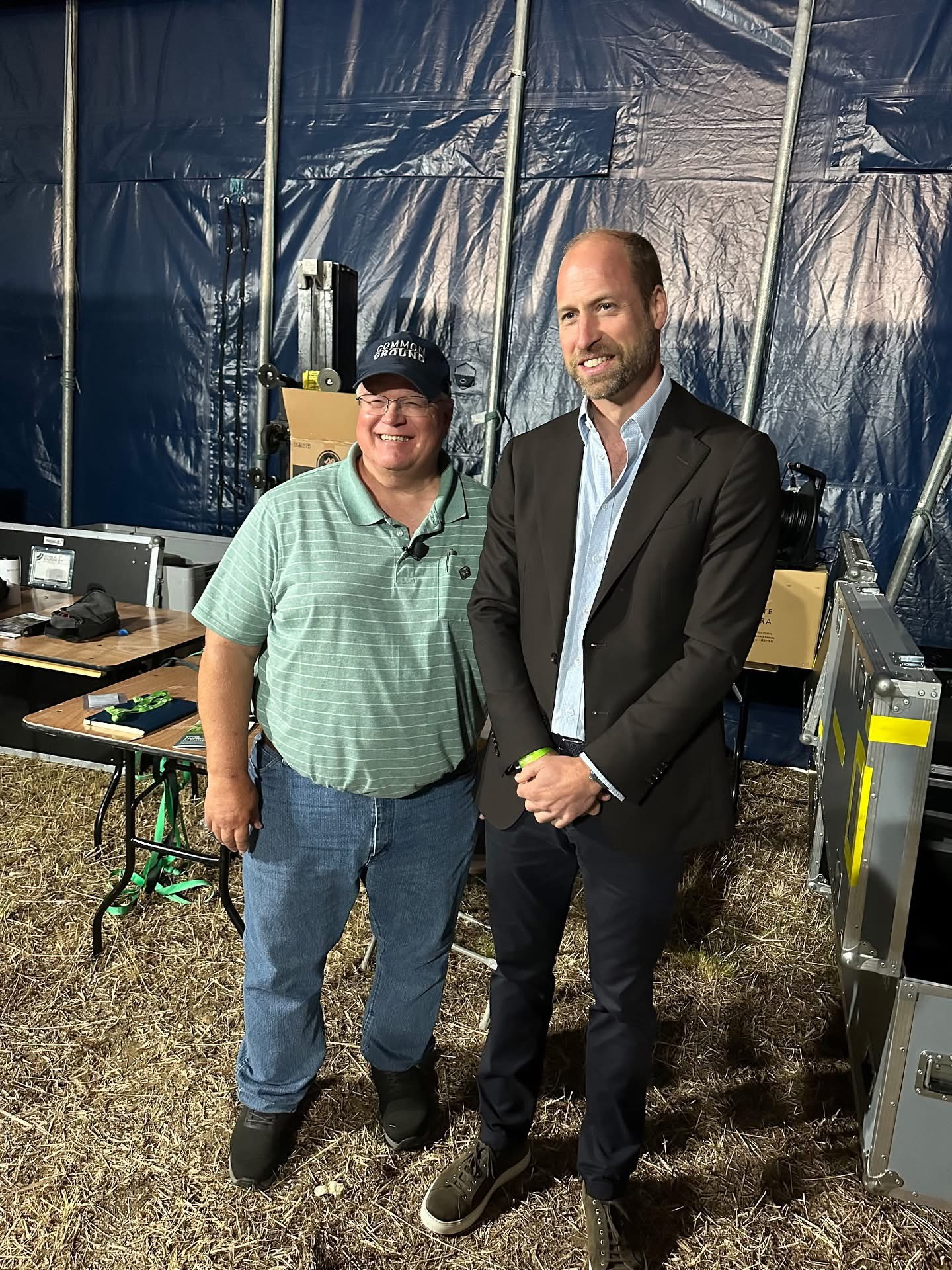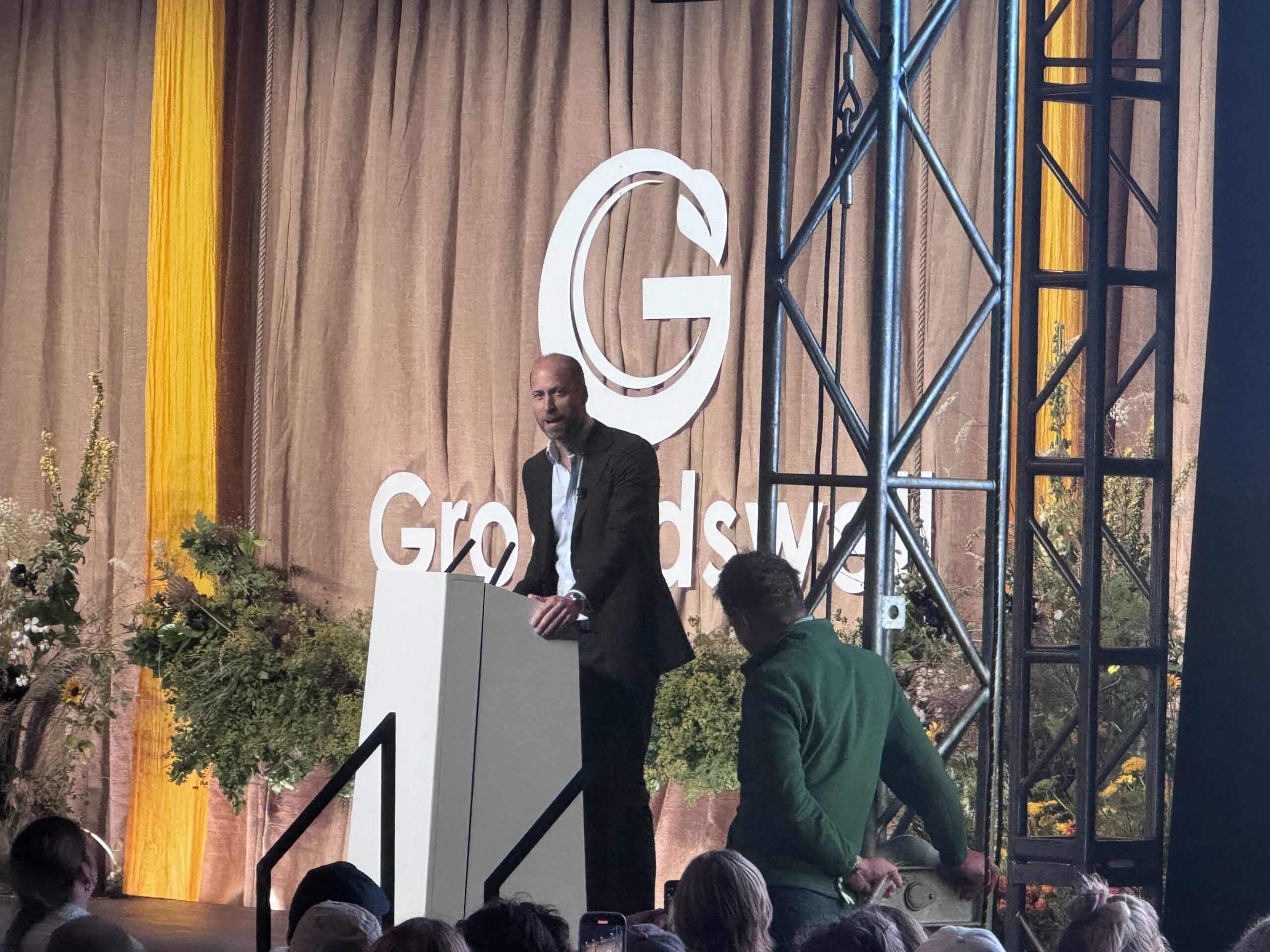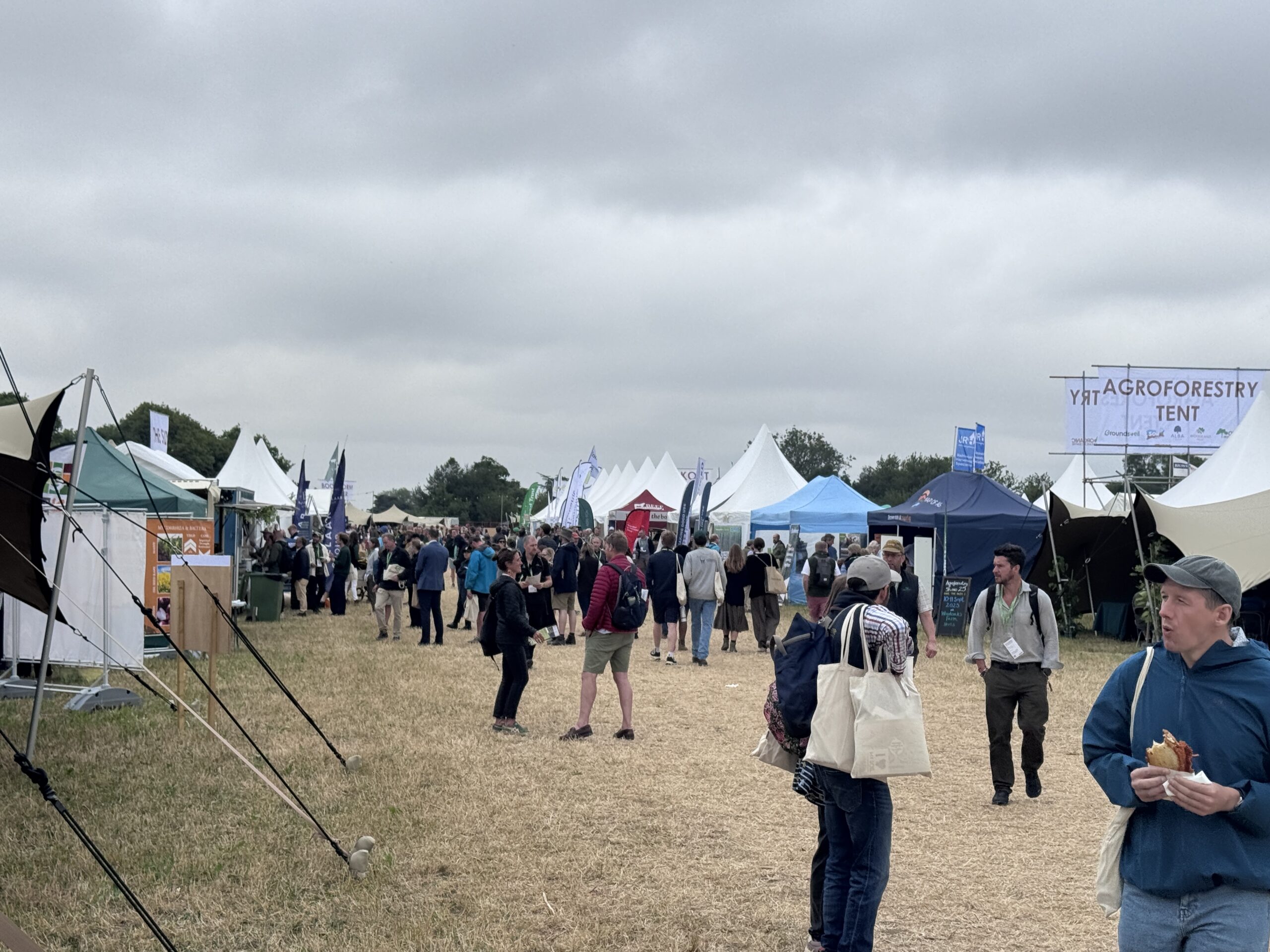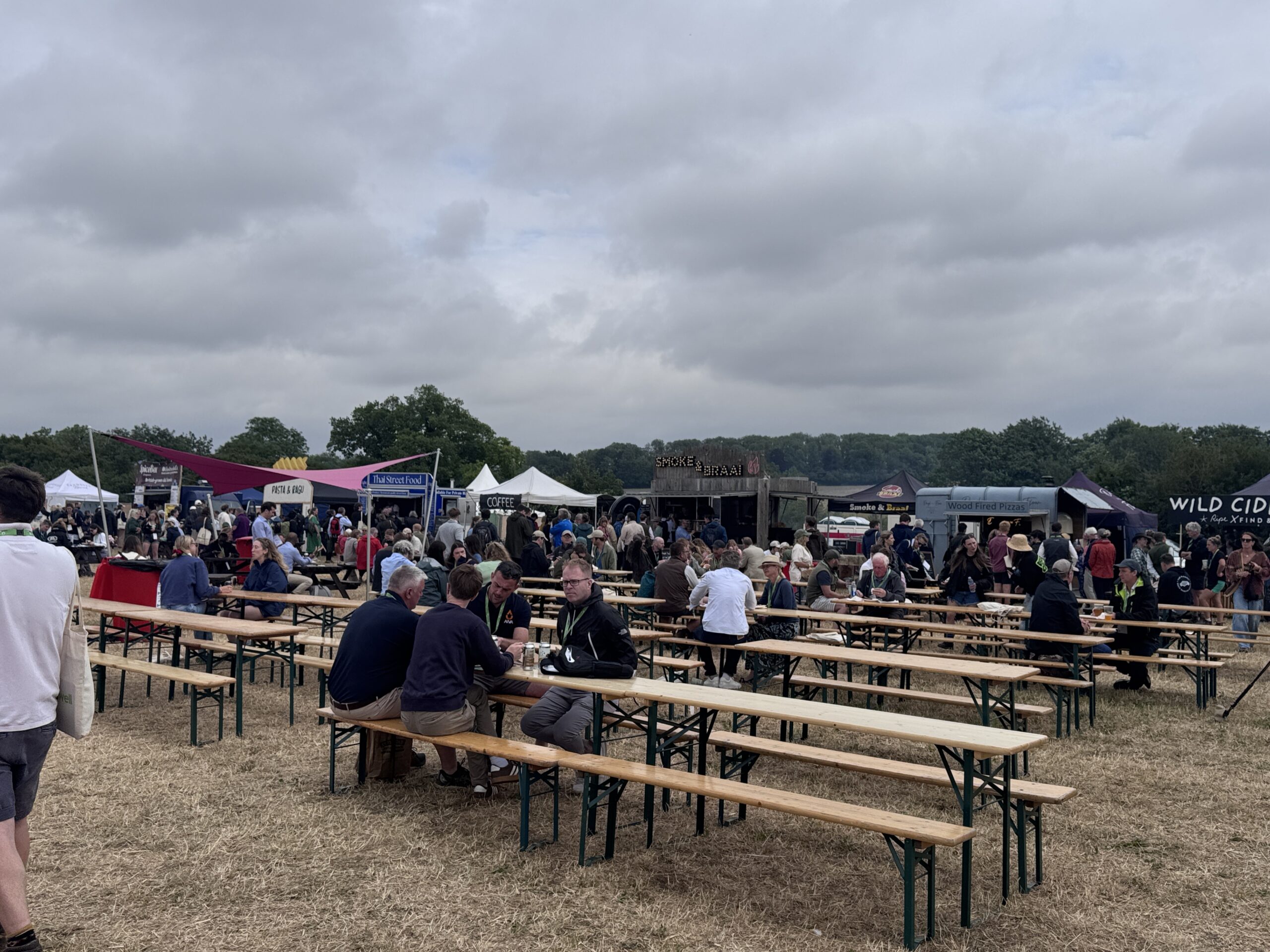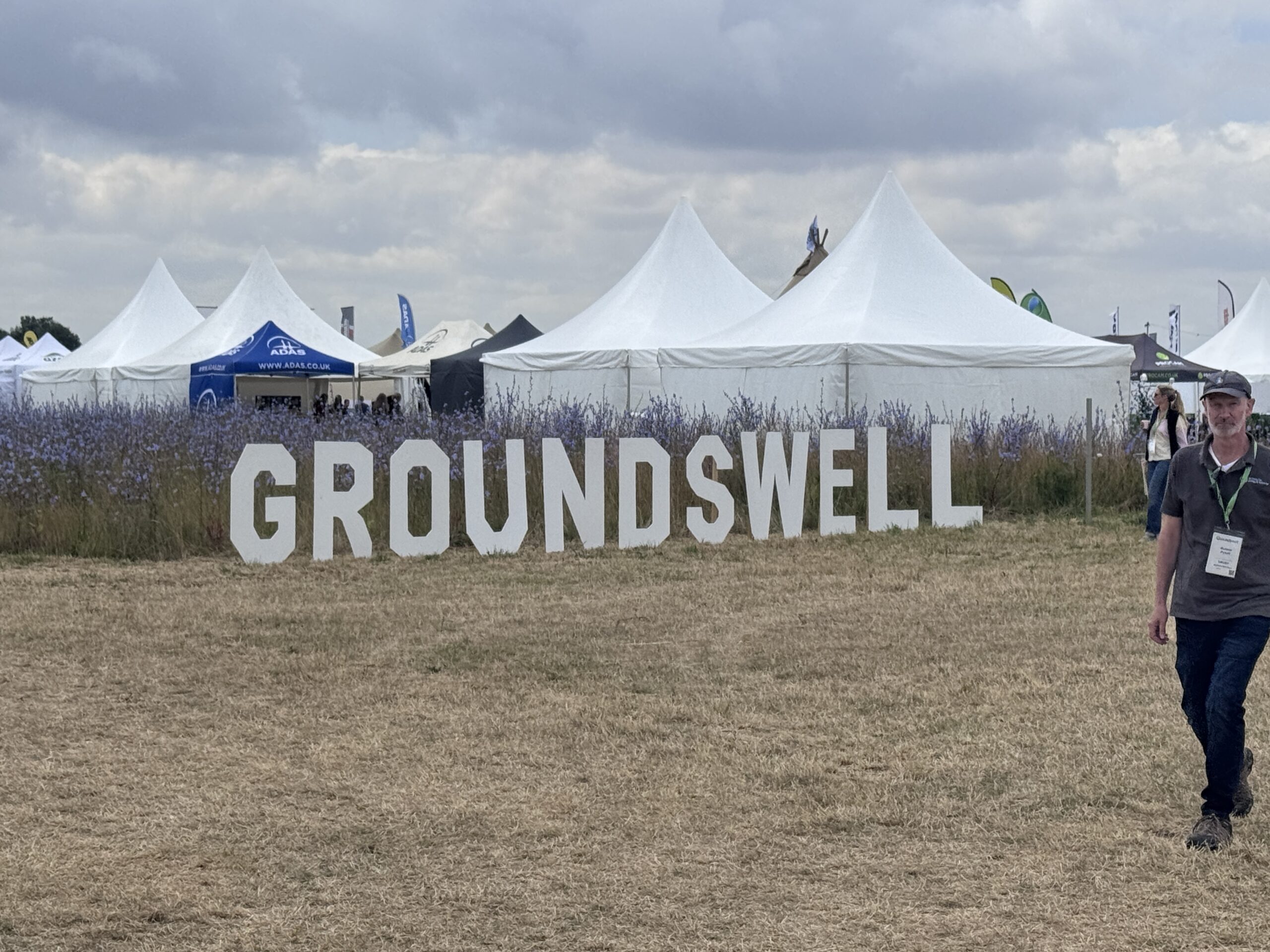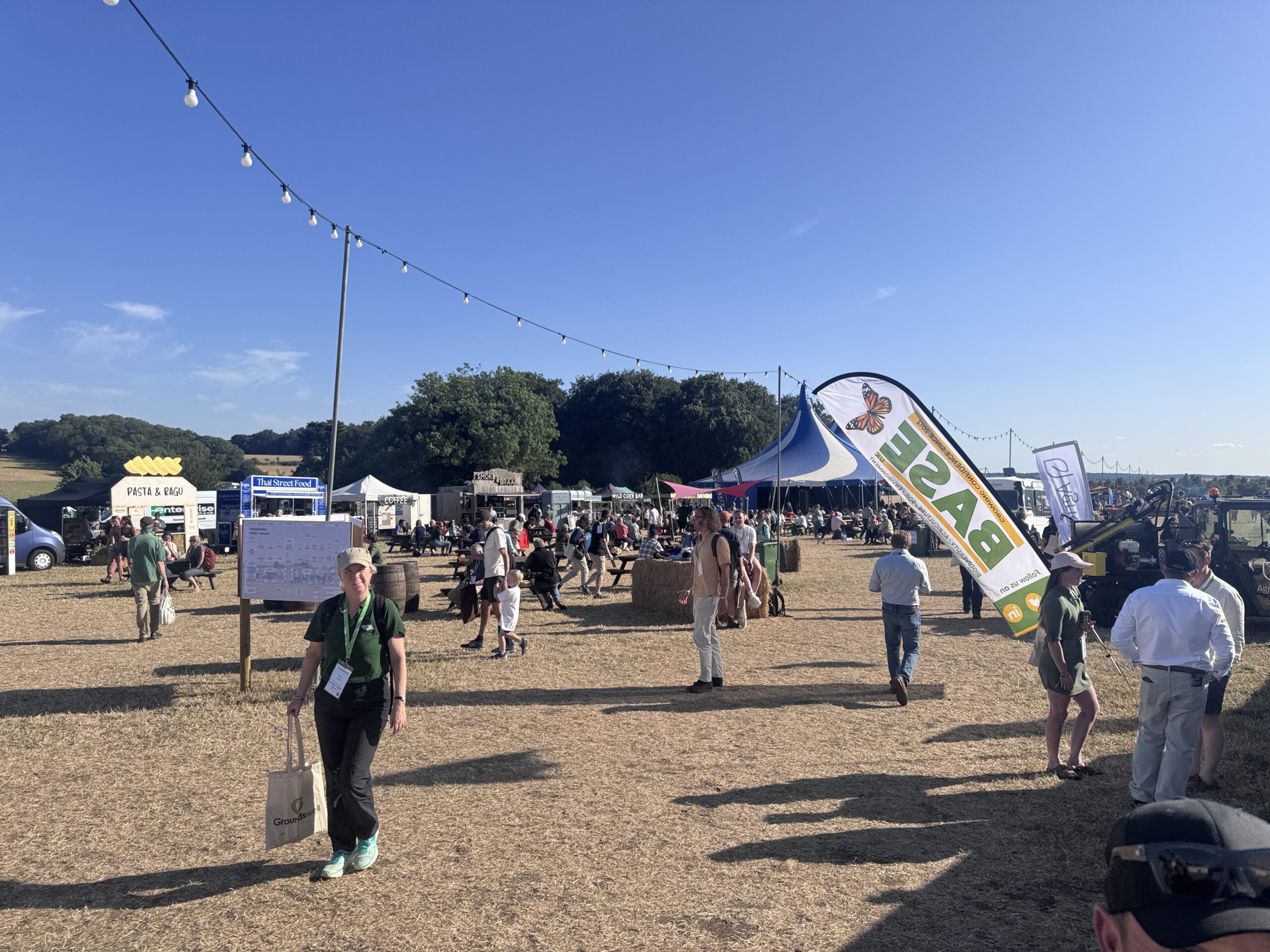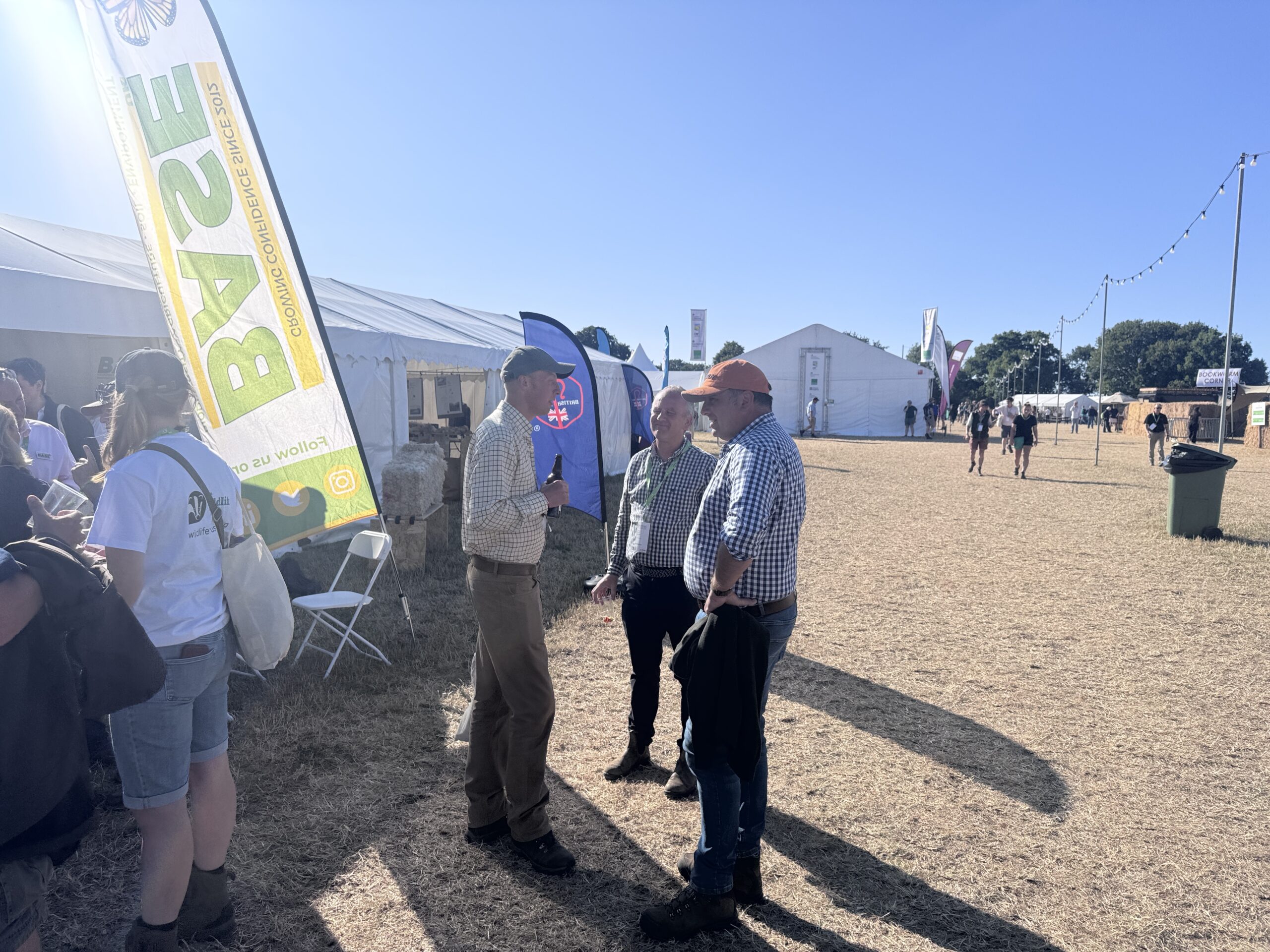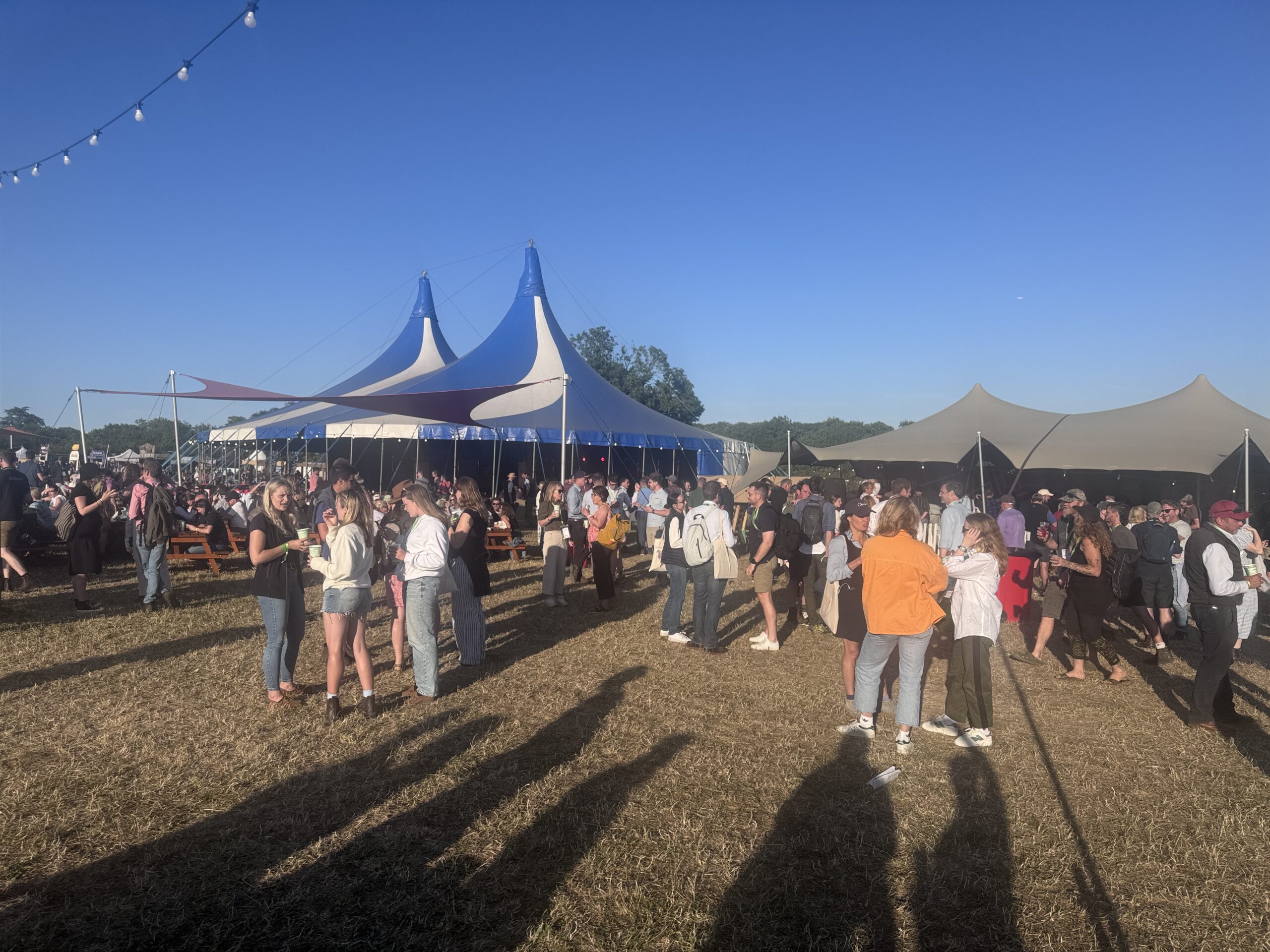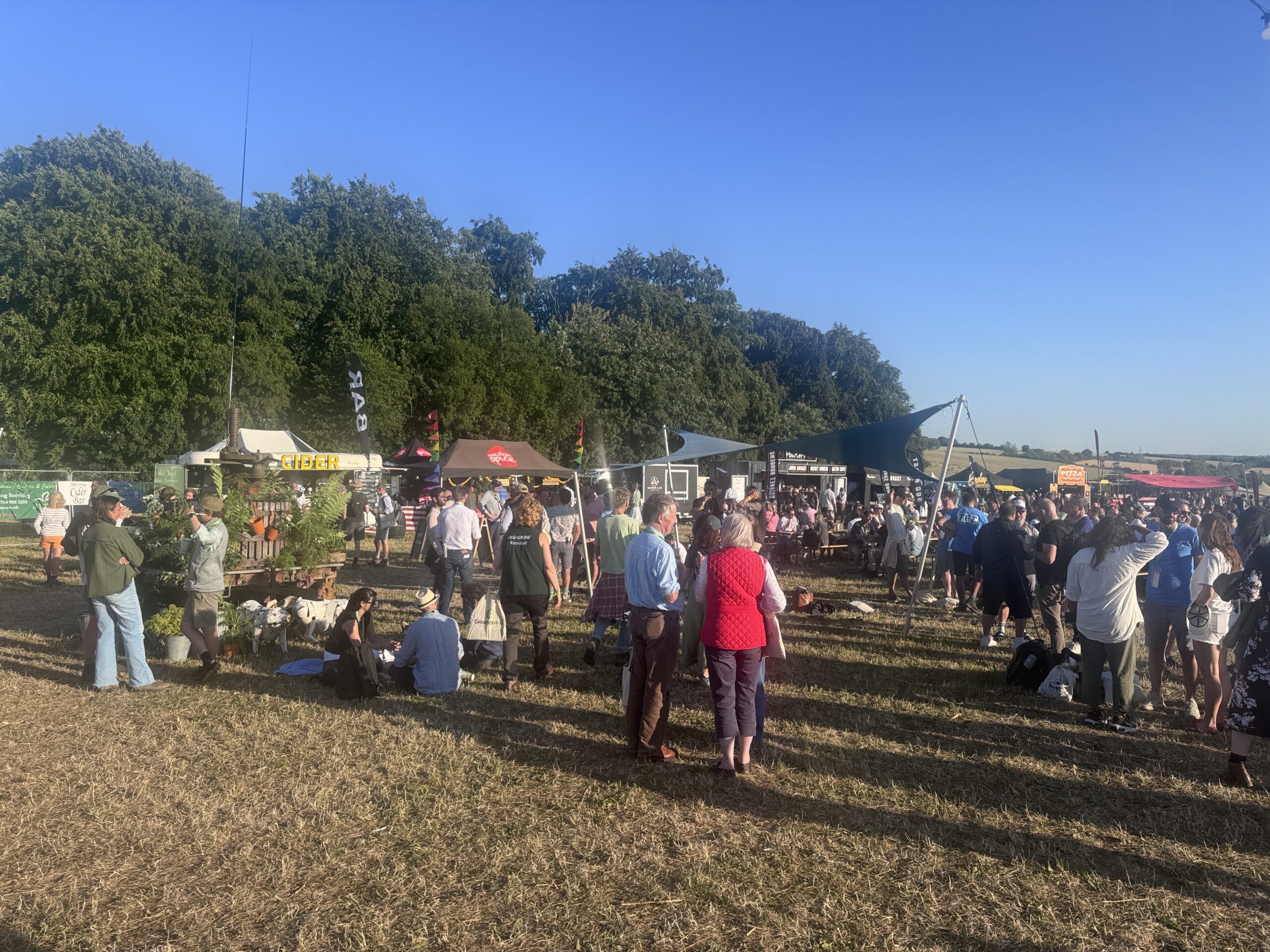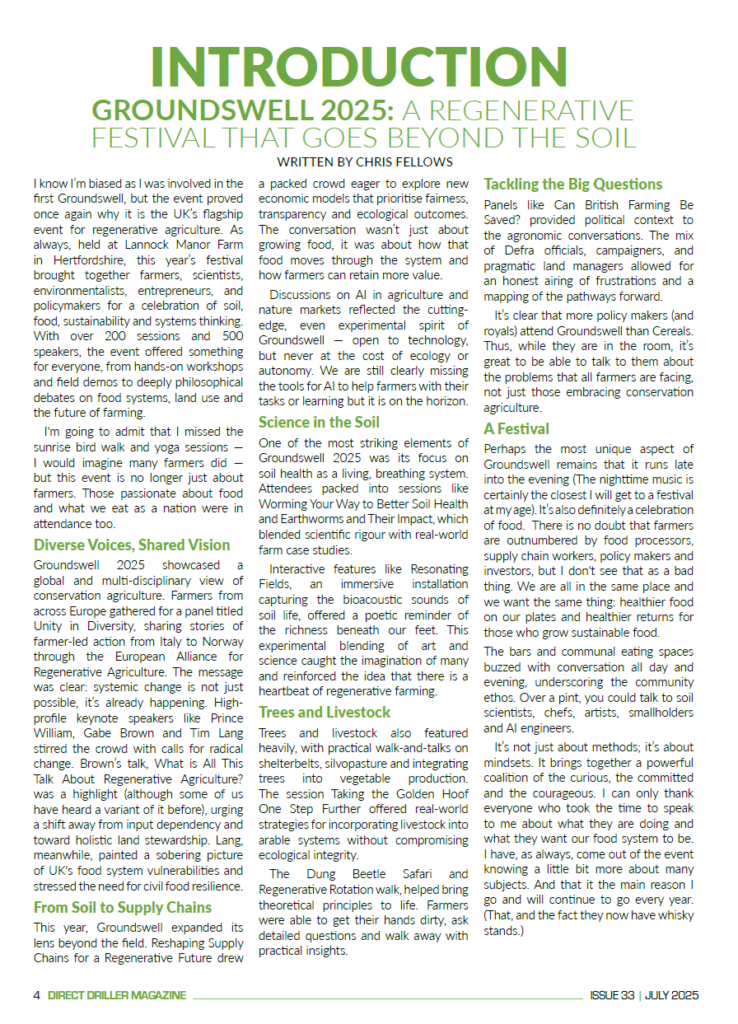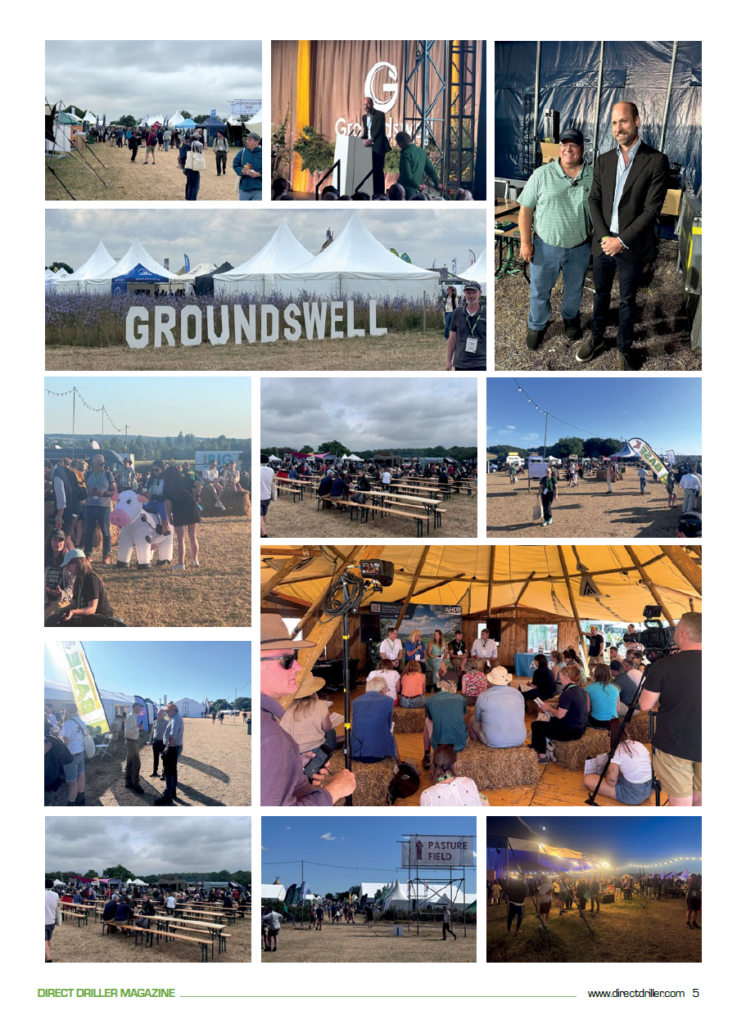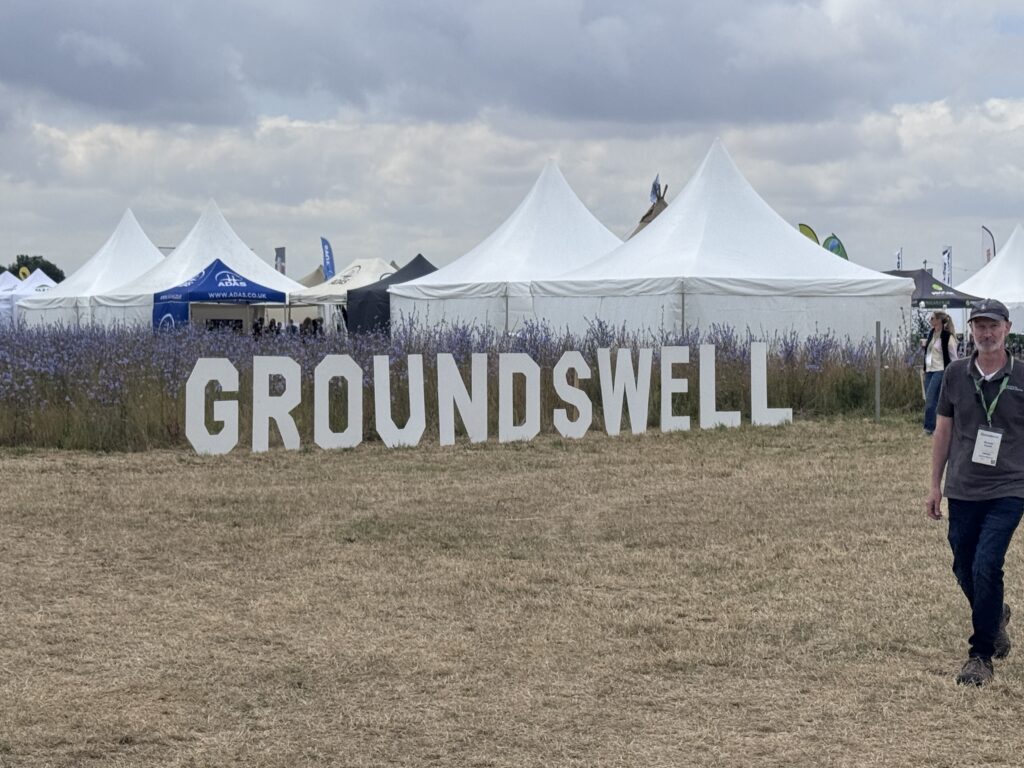I know I’m biased as I was involved in the first Groundswell, but the event proved once again why it is the UK’s flagship event for regenerative agriculture. As always, held at Lannock Manor Farm in Hertfordshire, this year’s festival brought together farmers, scientists, environmentalists, entrepreneurs, and policymakers for a celebration of soil, food, sustainability and systems thinking. With over 200 sessions and 500 speakers, the event offered something for everyone, from hands-on workshops and field demos to deeply philosophical debates on food systems, land use and the future of farming.
I’m going to admit that I missed the sunrise bird walk and yoga sessions, I would imagine many farmers did, but this event is no longer just about farmers. Those passionate about food and what we eat as a nation were in attendance too.
Diverse Voices, Shared Vision
Groundswell 2025 showcased a global and multi-disciplinary view of conservation agriculture. Farmers from across Europe gathered for a panel titled Unity in Diversity, sharing stories of farmer-led action from Italy to Norway through the European Alliance for Regenerative Agriculture. The message was clear: systemic change is not just possible, it’s already happening. Highprofile keynote speakers like Prince
William, Gabe Brown and Tim Lang stirred the crowd with calls for radical change. Brown’s talk, What is All This Talk About Regenerative Agriculture? was a highlight (although some of us have heard a variant of it before), urging a shift away from input dependency and toward holistic land stewardship. Lang, meanwhile, painted a sobering picture of UK’s food system vulnerabilities and stressed the need for civil food resilience.
From Soil to Supply Chains
This year, Groundswell expanded its lens beyond the field. Reshaping Supply Chains for a Regenerative Future drew a packed crowd eager to explore new economic models that prioritise fairness, transparency and ecological outcomes. The conversation wasn’t just about growing food, it was about how that food moves through the system and how farmers can retain more value. Discussions on AI in agriculture and
nature markets reflected the cuttingedge, even experimental spirit of Groundswell — open to technology, but never at the cost of ecology or
autonomy. We are still clearly missing the tools for AI to help farmers with their tasks or learning but it is on the horizon.
Science in the Soil
One of the most striking elements of Groundswell 2025 was its focus on soil health as a living, breathing system. Attendees packed into sessions like Worming Your Way to Better Soil Health and Earthworms and Their Impact, which blended scientific rigour with real-world
farm case studies. Interactive features like Resonating Fields, an immersive installation capturing the bioacoustic sounds of soil life, offered a poetic reminder of the richness beneath our feet. This experimental blending of art and science caught the imagination of many and reinforced the idea that there is a heartbeat of regenerative farming.
Trees and Livestock
Trees and livestock also featured heavily, with practical walk-and-talks on shelterbelts, silvopasture and integrating trees into vegetable production. The session Taking the Golden Hoof One Step Further offered real-world strategies for incorporating livestock into arable systems without compromising ecological integrity. The Dung Beetle Safari and Regenerative Rotation walk, helped bring theoretical principles to life. Farmers were able to get their hands dirty, ask detailed questions and walk away with practical insights.
Tackling the Big Questions
Panels like Can British Farming Be Saved? provided political context to the agronomic conversations. The mix of Defra officials, campaigners, and pragmatic land managers allowed for an honest airing of frustrations and a mapping of the pathways forward. It’s clear that more policy makers (and royals) attend Groundswell than Cereals. Thus, while they are in the room, it’s great to be able to talk to them about the problems that all farmers are facing, not just those embracing conservation agriculture.
A Festival
Perhaps the most unique aspect of Groundswell remains that it runs late into the evening (The nighttime music is certainly the closest I will get to a festival at my age). It’s also definitely a celebration of food. There is no doubt that farmers are outnumbered by food processors, supply chain workers, policy makers and investors, but I don’t see that as a bad thing. We are all in the same place and we want the same thing: healthier food on our plates and healthier returns for those who grow sustainable food. The bars and communal eating spaces buzzed with conversation all day and evening, underscoring the community ethos. Over a pint, you could talk to soil scientists, chefs, artists, smallholders and AI engineers.
It’s not just about methods; it’s about mindsets. It brings together a powerful coalition of the curious, the committed and the courageous. I can only thank everyone who took the time to speak to me about what they are doing and what they want our food system to be. I have, as always, come out of the event knowing a little bit more about many subjects. And that it the main reason I go and will continue to go every year. (That, and the fact they now have whisky stands.)
